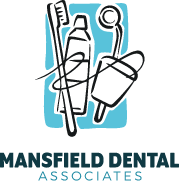Have you ever experienced troublesome pain around your jaw, possibly in or around your ears? You may be suffering from temporomandibular joint problems, also referred to as TMJ disorders. The temporomandibular joint (TMJ) is the joint that connects the skull to your jawbone. The TMJ and the muscles attached to it control the up and down and side to side movement of the jaw. This joint affects one’s ability to chew, speak, and open and close the mouth. Symptoms of TMJ disorders include pain in the jaw or facial muscles, pain in or around the ears, difficulty or soreness while chewing, or locking of the joint. Some TMJ sufferers may experience persistent headaches. At their practice in Mansfield, Dr. Blair Jones and Dr. Seth Harris strive for patient education and understanding, and they will take the time to ensure that patients understand diagnoses and treatment options. The doctors answer some common questions about TMJ.
Question: I have heard that having a bad bite or braces can cause TMJ. Is this true?
Answer: Research does not support this theory. Trauma to the jaw or the TMJ can cause TMJ disorders. Also, the cartilage that surrounds the joint can be weakened by arthritis, leading to TMJ issues. Teeth grinding or clenching the jaw, called bruxism, has been related to TMJ disorders because of the excessive force that the teeth exert on the teeth surfaces.
Question: How can I make myself stop grinding my teeth if I’m doing it while I’m asleep?
Answer: Dr. Jones and Dr. Harris can fit you for a mouth guard that you wear while sleeping. This oral appliance can prevent you from grinding your teeth overnight.
Question: What can I expect from my TMJ consultation?
Answer: Our dentists will thoroughly examine your mouth, jaw, and neck. They will also ask you questions about your pain history. They will use digital radiography to take x-rays of your teeth and jawbone. They will promptly show you the x-ray on the monitor so that you can understand what is going on and what your options are.
Question: What is my long-term prognosis?
Answer: According to the National Institute of Dental and Craniofacial Research, most TMJ patients find relief in conservative treatment methods such as applying ice packs, avoiding sudden jaw movements such as yawning or gum chewing, eating soft foods, and practicing gentle jaw stretches. If you grind your teeth or clench your jaw, Dr. Jones and Dr. Harris may suggest that you consider relaxation techniques, lifestyle changes that can lower daily stress, or a mouth guard for sleep.
About Our Doctors
If you would like more information about TMJ, please call our office or schedule an appointment at (817) 259-1357. At Mansfield Dental Associates, we treat patients from Mansfield, South Arlington, Kennedale, Southeast Ft. Worth, Alvarado, Midlothian and neighboring areas.





Recent Comments